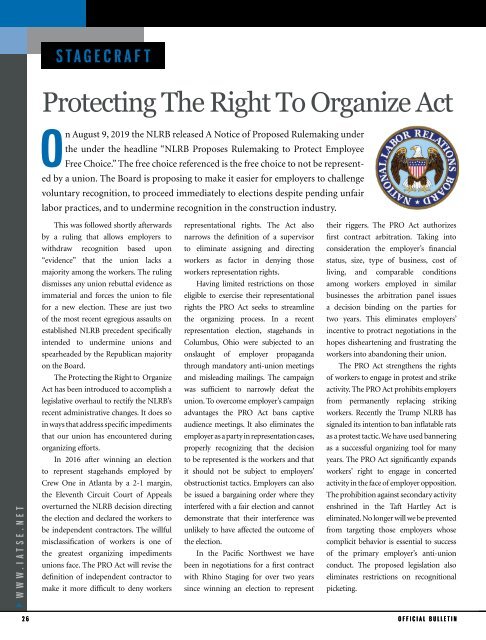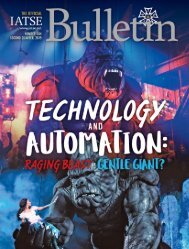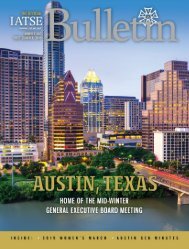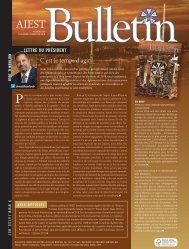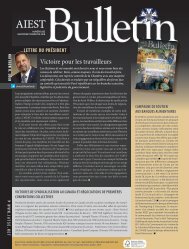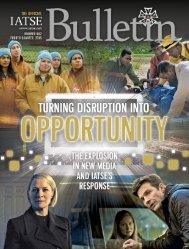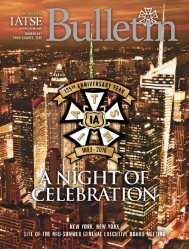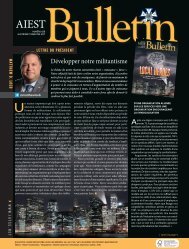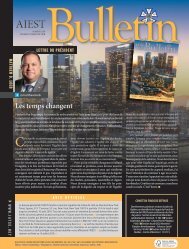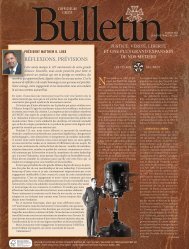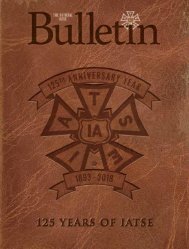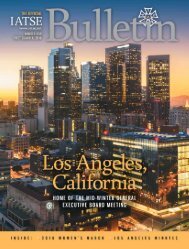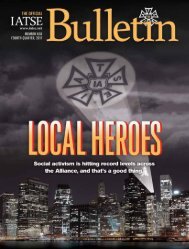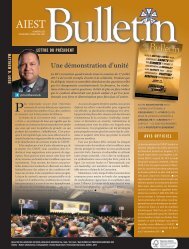IATSE 3rd 2019_web
Create successful ePaper yourself
Turn your PDF publications into a flip-book with our unique Google optimized e-Paper software.
STAGECRAFT<br />
Protecting The Right To Organize Act<br />
O<br />
n August 9, <strong>2019</strong> the NLRB released A Notice of Proposed Rulemaking under<br />
the under the headline “NLRB Proposes Rulemaking to Protect Employee<br />
Free Choice.” The free choice referenced is the free choice to not be represented<br />
by a union. The Board is proposing to make it easier for employers to challenge<br />
voluntary recognition, to proceed immediately to elections despite pending unfair<br />
labor practices, and to undermine recognition in the construction industry.<br />
WWW.<strong>IATSE</strong>.NET<br />
This was followed shortly afterwards<br />
by a ruling that allows employers to<br />
withdraw recognition based upon<br />
“evidence” that the union lacks a<br />
majority among the workers. The ruling<br />
dismisses any union rebuttal evidence as<br />
immaterial and forces the union to file<br />
for a new election. These are just two<br />
of the most recent egregious assaults on<br />
established NLRB precedent specifically<br />
intended to undermine unions and<br />
spearheaded by the Republican majority<br />
on the Board.<br />
The Protecting the Right to Organize<br />
Act has been introduced to accomplish a<br />
legislative overhaul to rectify the NLRB’s<br />
recent administrative changes. It does so<br />
in ways that address specific impediments<br />
that our union has encountered during<br />
organizing efforts.<br />
In 2016 after winning an election<br />
to represent stagehands employed by<br />
Crew One in Atlanta by a 2-1 margin,<br />
the Eleventh Circuit Court of Appeals<br />
overturned the NLRB decision directing<br />
the election and declared the workers to<br />
be independent contractors. The willful<br />
misclassification of workers is one of<br />
the greatest organizing impediments<br />
unions face. The PRO Act will revise the<br />
definition of independent contractor to<br />
make it more difficult to deny workers<br />
representational rights. The Act also<br />
narrows the definition of a supervisor<br />
to eliminate assigning and directing<br />
workers as factor in denying those<br />
workers representation rights.<br />
Having limited restrictions on those<br />
eligible to exercise their representational<br />
rights the PRO Act seeks to streamline<br />
the organizing process. In a recent<br />
representation election, stagehands in<br />
Columbus, Ohio were subjected to an<br />
onslaught of employer propaganda<br />
through mandatory anti-union meetings<br />
and misleading mailings. The campaign<br />
was sufficient to narrowly defeat the<br />
union. To overcome employer’s campaign<br />
advantages the PRO Act bans captive<br />
audience meetings. It also eliminates the<br />
employer as a party in representation cases,<br />
properly recognizing that the decision<br />
to be represented is the workers and that<br />
it should not be subject to employers’<br />
obstructionist tactics. Employers can also<br />
be issued a bargaining order where they<br />
interfered with a fair election and cannot<br />
demonstrate that their interference was<br />
unlikely to have affected the outcome of<br />
the election.<br />
In the Pacific Northwest we have<br />
been in negotiations for a first contract<br />
with Rhino Staging for over two years<br />
since winning an election to represent<br />
their riggers. The PRO Act authorizes<br />
first contract arbitration. Taking into<br />
consideration the employer’s financial<br />
status, size, type of business, cost of<br />
living, and comparable conditions<br />
among workers employed in similar<br />
businesses the arbitration panel issues<br />
a decision binding on the parties for<br />
two years. This eliminates employers’<br />
incentive to protract negotiations in the<br />
hopes disheartening and frustrating the<br />
workers into abandoning their union.<br />
The PRO Act strengthens the rights<br />
of workers to engage in protest and strike<br />
activity. The PRO Act prohibits employers<br />
from permanently replacing striking<br />
workers. Recently the Trump NLRB has<br />
signaled its intention to ban inflatable rats<br />
as a protest tactic. We have used bannering<br />
as a successful organizing tool for many<br />
years. The PRO Act significantly expands<br />
workers’ right to engage in concerted<br />
activity in the face of employer opposition.<br />
The prohibition against secondary activity<br />
enshrined in the Taft Hartley Act is<br />
eliminated. No longer will we be prevented<br />
from targeting those employers whose<br />
complicit behavior is essential to success<br />
of the primary employer’s anti-union<br />
conduct. The proposed legislation also<br />
eliminates restrictions on recognitional<br />
picketing.<br />
26 OFFICIAL BULLETIN


